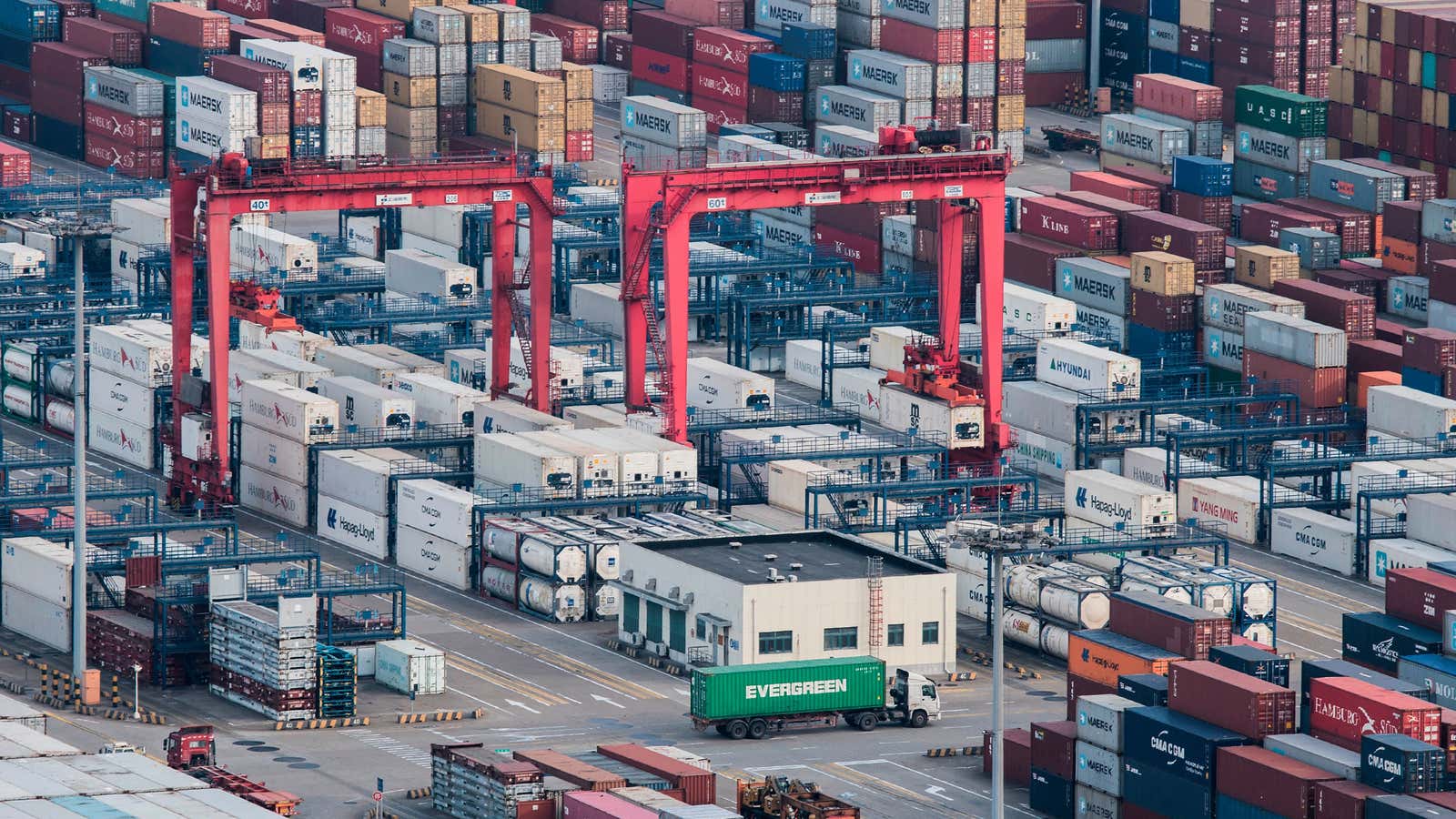China responded as expected today to US tariffs on $34 billion in Chinese imports (pdf) taking effect, with Beijing quickly announcing roughly equivalent retaliatory measures. But while those came as no surprise given earlier warnings, the tone and wording seen in official statements, state media, and elsewhere were perhaps stronger than anticipated—and revealing.
The US penalties became a reality at just after midnight in Washington, which in Beijing was just past noon (July 6). Minutes later, China’s commerce ministry released a statement (link in Chinese) saying the US had just “launched the largest trade war in economic history to date.” It equated the US move to bullying and warned that globally it would trigger market turmoil, hamper economic recovery, and pose a “grave threat” to the security of industry and value chains.
It said the US had violated World Trade Organization rules by imposing the tariffs, and indicated China would raise the issue with the regulatory body in time.
Joining in was the domestic media, which in China is ultimately controlled by the government.
The overseas edition of the People’s Daily ran a commentary (link in Chinese) saying, “There’s a simple truth to the idea of launching trade wars with multiple countries: When two people fight, they might both be responsible. When you fight against all, it’s likely you are the problematic one.” That was no doubt in reference to the Trump administration threatening or imposing tariffs on a wide range of countries around the world, even close allies.
A Global Times commentary suggested the US was futilely trying to contain China’s progress, stating, “If the US is determined to escalate conflicts with China, then so be it. Perhaps the Trump administration can only clear its mind after a fight.”
On Chinese social media, certain posts on the matter quickly garnered hundreds of thousands of views. One came from Zhan Hao, who penned a 2011 book on currency wars (link in Chinese). “We must prepare for a long battle. Only when we are not afraid will we be able to intimidate others, and win the mental war,” he wrote on Weibo (link in Chinese), a platform similar to Twitter. In fact, he wrote, China could see a lasting gain if those in the country who don’t recognize the US’s desire to contain the world’s second-largest economy get a wake-up call. “A single action from the US is more effective than thousands of our warnings.”
On the WeChat messaging platform, “Bull Piano,” (link in Chinese) a popular account focused on global finance, said the US action was a crisis, but that China had proven adept at turning crises into opportunities: “Implementing larger-scale reforms and opening up… is our greatest magic weapon to win this trade war.”
Beijing apparently agrees: State-run news outlet Xinhua reposted the commentary on its website (link in Chinese).
